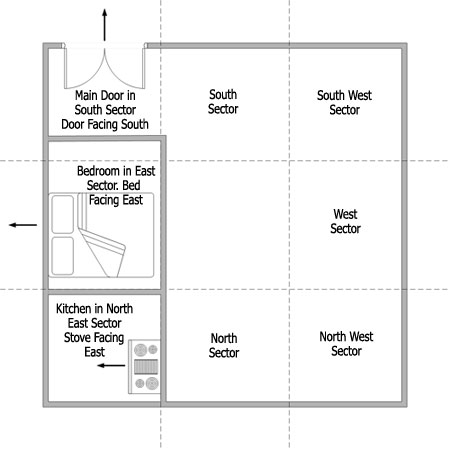Strictly speaking, the placement of the altar is not within the realms of Feng Shui. However Chinese culture, Feng Shui and the religions that the ancient Chinese practices – namely Taoism and Buddhism are so closely inter-twined that it is difficult to draw the line. Feng Shui consultants that practice in locales with a significant Chinese population are as a norm expected to provide advice on the placement of the altar in the house.
So where should the altar be? As a best practice the altar should be placed in the living area and either facing the main door or facing the front part of the house. One of the functions of the deities is to “protect” the occupants of the house. Thus it is appropriate to place them in the “entrance” portion of the house.
Can you place the altar in the kitchen or bedroom? The answer is absolutely not unless it is the kitchen god whose rightful position is in the kitchen. But why not? The Buddha, Bodhisattva and Heavenly Deities are of a compassionate nature. One of the precepts is no killing and it is therefore it is incorrect to place them in the kitchen where meat such as pork, beef and chicken are present. Placing them in the bedroom is also not appropriate as it is disrespectful. Imagine running around naked or performing the love act in front of them!
Other than the kitchen and bedroom, other place that are not suitable for the altar include places that are unhygienic or dirty such as the toilet/bath and store room.
The Buddha, Bodhisattva such as Guan Yin and Deities such as Guan Di or Monk Ji Gong are considered to be equal. Your ancestors represented by their ancestor’s tablets are not. Therefore in an altar, your ancestor tablets should be place at a lower level. If you have single level altar, the deities should be raised so that they are higher than the ancestor tablets. A piece or a block of wood would do the job.
For a Feng Shui perspective, what are the things that you should consider when it comes to the placement of the altar?
You can start by looking upwards. The altar should not be placed under a beam or under the stairs. There should not be a toilet upstairs either. Neither should the altar face a toilet or kitchen.
It should also not be place against the wall that is shared with the kitchen or toilet. It should also not be placed on a spot where there is an underground water pipe or drain.
Although the best place for the altar is in the living room looking out of the front of the house, it should not be too close to the door or to the windows.
Ideally it should also be in a quiet location. So placing the hi-fi or piano next to the altar is out. So is playing mah jong session in front of the altar! The air conditioner should also not be placed above or next to the altar.
To save on space, some people place the aquarium underneath the altar. This is not recommended as there is a “water-fire” clash between the aquarium (water) and the altar (fire).
How high should the altar be and what is the best colour? There is only one condition on the height of the altar. The top level for the positioning of the heavenly beings should be the worshippers head and not lower than the mouth. Looking up at the deities suggest respect. If the altar is lower then you will be looking down and it suggests disrespect for the deities.
The best colour for the altar is red as in signifies auspiciousness. It does not have to be solid red. A wooden altar stained in some shade of red will do very well. Black is not suitable as it signifies inauspiciousness.
Finally do remember to pick an auspicious date to move in and set up the altar.















